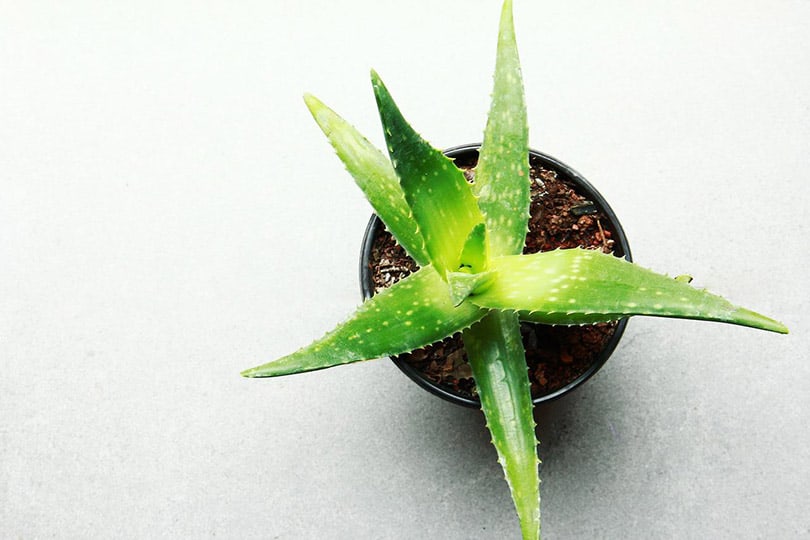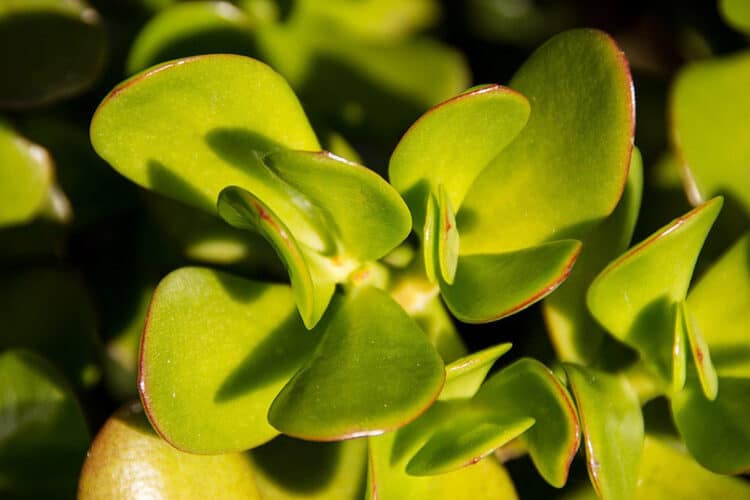Keeping your home beautiful with plants is one thing everyone thinks about at least once, but when it comes to having pets, you have to be sure that your plants don’t threaten your furry friends. Luckily, the vast majority of succulent plants are non-toxic for cats. However, some notable succulents should be avoided if you have cats in your household, as they are toxic when ingested.
Before purchasing any plants, ensure that they’re safe for your cat. The ASPCA’s list of toxic and non-toxic plants contains toxicity information for thousands of plants, including cats, dogs, and horses.
What Succulents Are Toxic for Cats?
Thankfully only a tiny handful of succulents have been confirmed as toxic for cats. However, PetMD lists the following succulents as being toxic if consumed by cats. So, keep these safely out of your cat’s reach if you must have them in your home.
Aloe Vera
Unfortunately, aloe vera is one of the most popular succulents on the market, and many people are trying to get their hands on these lovely plants. Aloe vera is added to many supplements, cosmetics, and even flavored water. However, this plant is known to cause gastrointestinal distress when consumed by cats and can cause vomiting, diarrhea, and lethargy.

Kalanchoe
Kalanchoes are known for their beautiful and abundant flowers in various shades of pastel pinks to bright oranges. They’re a popular houseplant and can be understood by many names, such as the devil’s backbone, mother of millions, and the mother-in-law plant. Cats who consume parts of this plant will primarily experience gastrointestinal upset like vomiting and diarrhea, but in severe cases of toxicity, an arrhythmia can occur in your cat’s heart. Seek veterinary care immediately if your cat consumes part of your kalanchoe plant.
Euphorbia
Euphorbias are a large genus of plants that can present as tiny, low-growing ground plants or massive trees. Many euphorbia plants, like poinsettias, pencil cacti, and crowns of thorns, are poisonous to both cats and dogs. Consuming these can result in symptoms ranging from gastrointestinal upset to skin and eye irritation.
It’s worth noting that euphorbia plants are considered highly toxic to humans. So, that’s just one more reason not to display these in your home.
Jade
Jade plants are so popular that it’s almost mind-boggling given that these plants aren’t just toxic to our pets but also to humans. A jade plant’s sap is poisonous and causes significant irritation when it comes in contact with our skin. It’s even worse if you accidentally get some in your eye. You’re recommended to wear gloves and goggles when you trim them.
Hens & Chickens
The Hens and Chickens plant sometimes referred to as a “Hens and Chicks” or “Houseleek,” is a popular, low-maintenance succulent that can be grown in almost any climate and location, including rock gardens and succulent wreaths. Unfortunately, while they make for a visually stunning display, they can cause your cat severe gastrointestinal distress.

Burro’s Tail
Burro’s tail is a beautiful plant to display in hanging planters and shelves. It doesn’t flower, but it’s a sight to behold when given vertical space. However, this plant can be toxic for your cat. Keep it away from your cat’s reach if you want to display it!
How to Protect Your Cat from Toxic Plants
The easiest way to ensure that your cat never gets into your toxic plants is not to have them. While succulents may be beautiful, they’re not worth the risk of accidentally killing your cat, and there are plenty of plants that you can choose from that don’t pose a threat to your cat. In addition, the characteristics of succulents are not unique to the grouping, and you can find plants that meet your desires without the risk!
Final Thoughts
Succulents are beautiful and make an excellent centerpiece for your dinner table, but that doesn’t mean they’re universally safe for our pets (or even for us, for that matter.) Luckily, the vast majority of succulents are safe to keep around your cats as the concentration of toxins in their sap is low.
If you are worried that your cat has ingested part of your plant, contact your veterinarian immediately to get their opinion on whether your cat needs to be brought in for examination and observation.
Featured Image Credit: Pixabay














